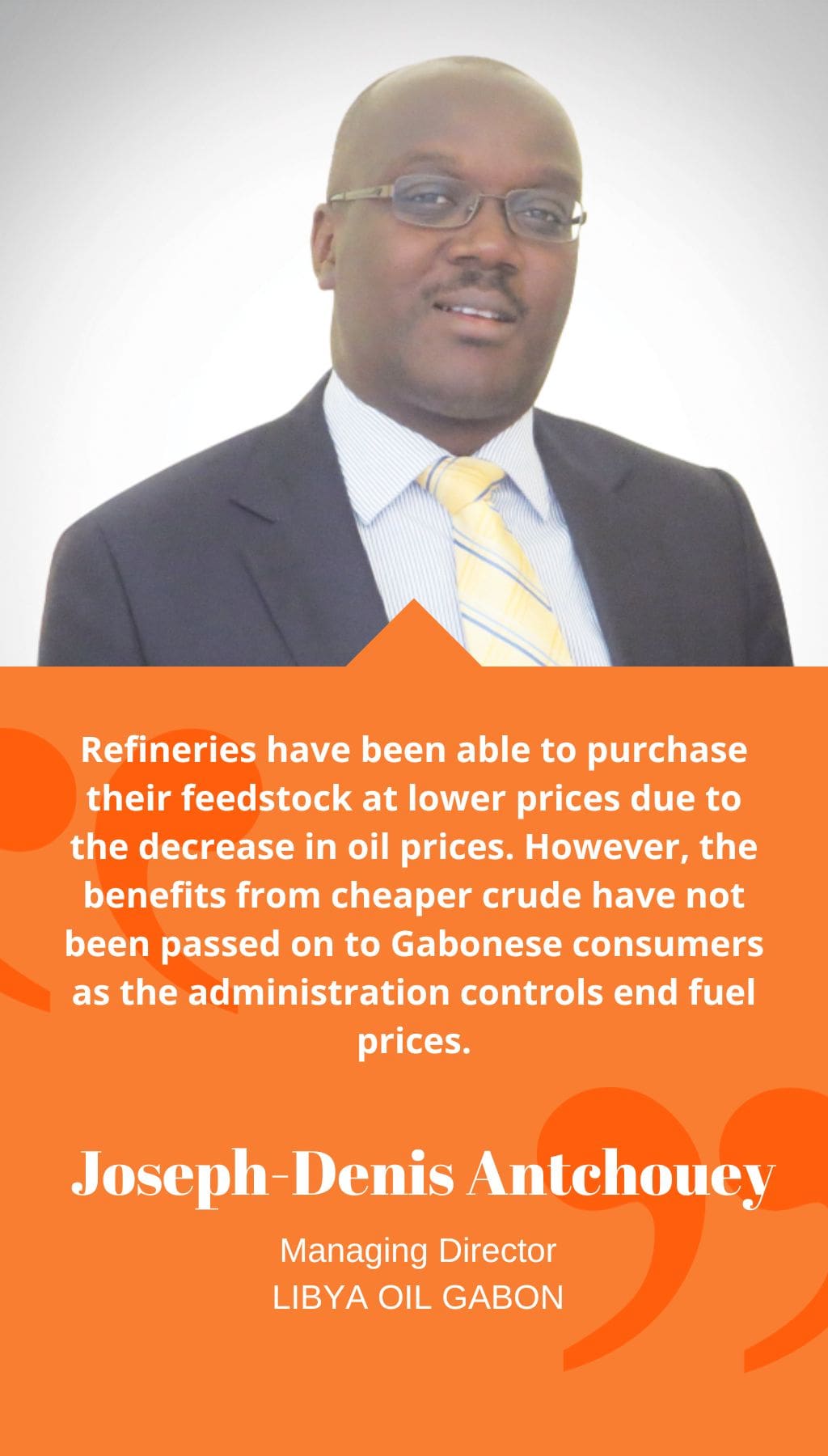
- Gabon | 10 July 2019

What is the impact of low oil prices on the downstream sector?
Lower oil prices have a significant impact on the downstream sector. Industrial clients, who form a large proportion of petroleum product consumers, tend to reduce their consumption when oil and gas industry activity decreases. This naturally affects the downstream sector as their buyers have less incentive to consume.
Who is the most affected party by the low oil prices in the downstream sector?
The state is the most affected party as a majority of its total revenues are derived from the oil and gas industry. The decrease in revenues has consequential effects on the country’s infrastructure projects and the activity of local companies.
How have refineries benefited from the lower oil prices?
Refineries have been able to purchase their feedstock at lower prices due to the decrease in oil prices. However, the benefits from cheaper crude have not been passed on to Gabonese consumers as the administration controls end fuel prices.
Can you provide details about the previous fuel prices in Gabon?
Previously, the refined products costs were around XAF 600-700 (USD 1.02-1.20) per liter, but they are sold at XAF 400 (USD 0.68) per liter. The government used to subsidize about XAF 200 (USD 0.34) per liter. Despite the decrease in oil prices and refined product costs, the products are still sold at XAF 400. However, the subsidy has decreased and has even turned into a tax benefiting the government rather than the end consumer.
How will Gabon’s downstream market benefit from the new 60,000-bpd refinery project being planned by Samsung C&T?
The existing Sogara refinery produces about 900,000 tons per year, of which 50% is atmospheric residual. With the growing domestic demand of 1 million tons per year, Sogara is no longer able to satisfy the needs of Gabon. Improving the performance of the local refining sector is crucial, and a new refinery project by Samsung C&T would be beneficial if it is modern, highly productive, and cost-competitive with international suppliers from the USA, Europe, and Asia. Since the new refinery would have the capacity to process about 3 million tons per year of oil, the output will need to be suitable for export as well. The Gabonese market alone may not have the demand to absorb this level of increased supply, so export opportunities would be necessary.
What is the impact of Gabon’s insufficient refining capacity on downstream distributors?
Due to Sogara’s inability to meet domestic demand, downstream distributors may need to import products from outside Gabon, but they require government authorization to do so. Historically, Sogara’s mission has been to supply the entire country with refined products through its own production or imports if needed. However, Sogara has faced structural challenges, and GPP (Gabon Oil Marketing) proposed importing a portion of the refined products. The government initially rejected the proposal until December 2014 when the refinery was closed due to a general strike in the oil sector. Importing refined products is only allowed by GPP once Sogara is unable to do so itself. Additionally, there is a need to expand the country’s storage capacity for imports, as having more storage capacity would improve import optimization.
How do the downstream sector’s logistics and transportation challenges impact the growth of distributors?
Logistics pose a major challenge for downstream distributors in Gabon. There are only two possible corridors to transfer products from the refinery to inland areas. The first option is the Port-Gentil-Libreville route by vessel, followed by Libreville-Moanda via railway. The second option involves traveling through Port-Gentil-Lambaréné-Ndjolé by barge on the Ogooué River. Distributing products through the Ogooué River depends on the availability of local barges, which can be unpredictable. During Gabon’s dry season, when the water level in the Ogooué decreases, barge owner Soleo reduces the supply and frequency of voyages. In the past, distribution companies like OiLibya had difficulty delivering products to private storage facilities and had to utilize SGEPP’s storage facility in Libreville. The need to alter transportation arrangements every year due to unpredictability is a significant challenge for distributors in the downstream sector.














